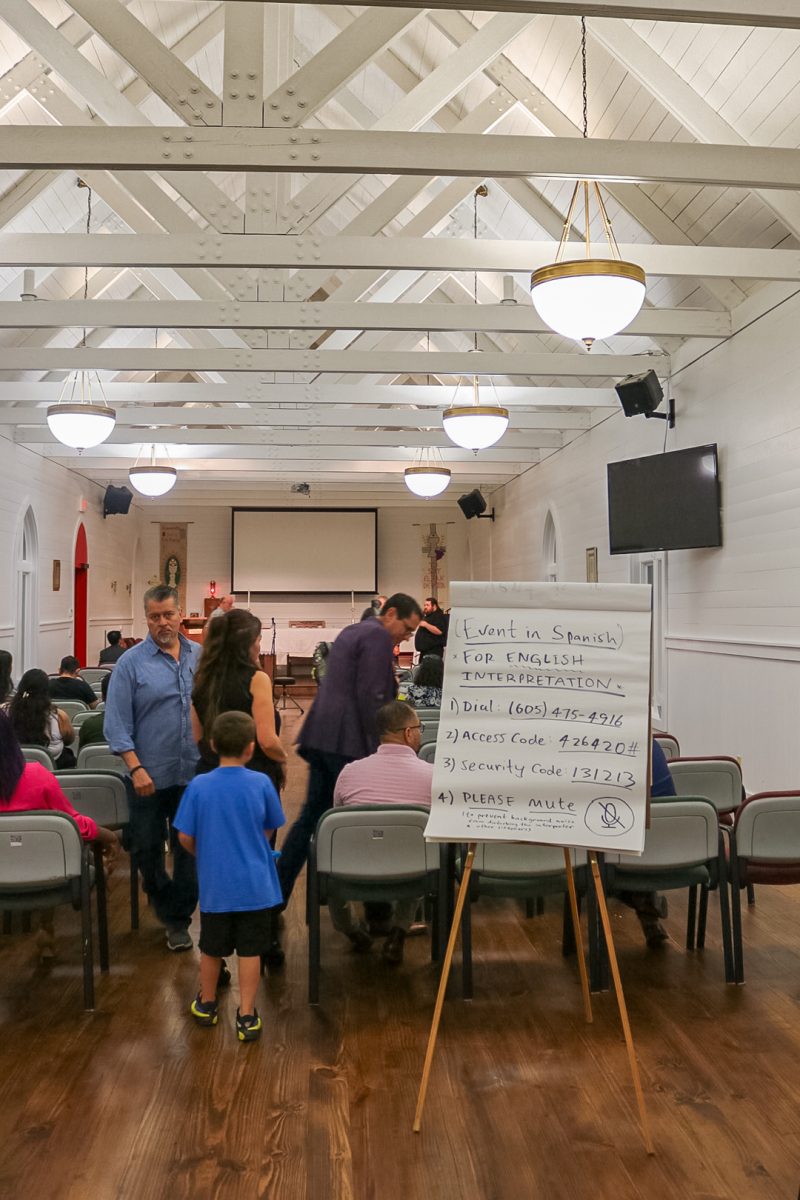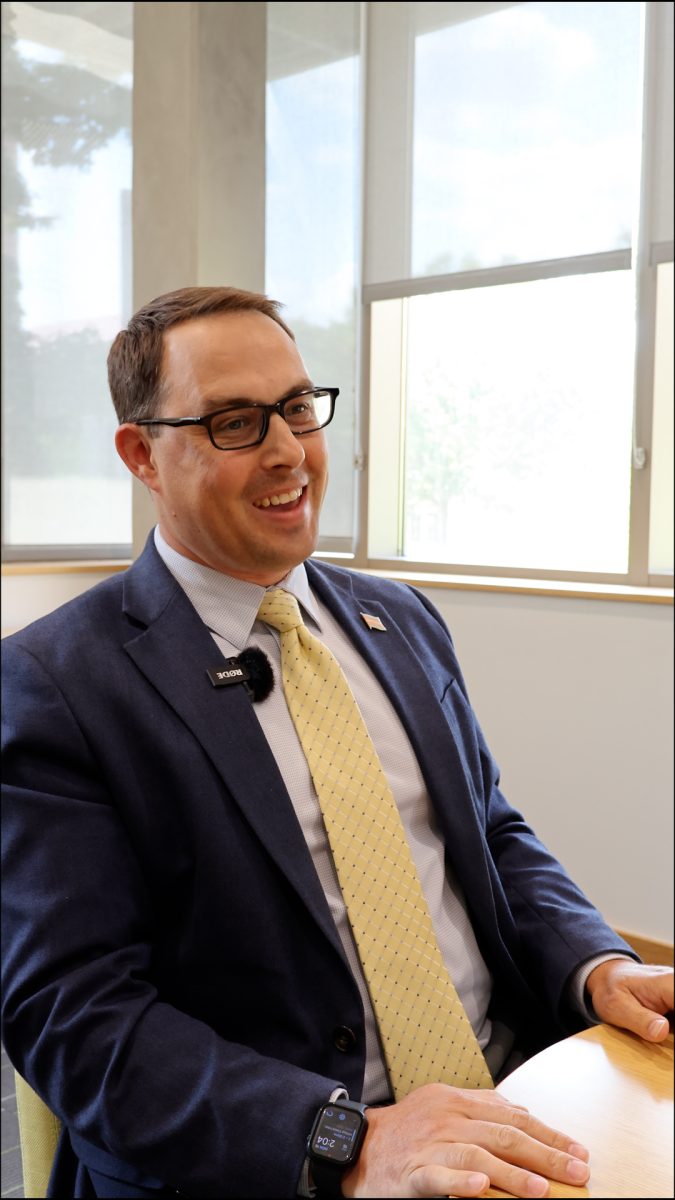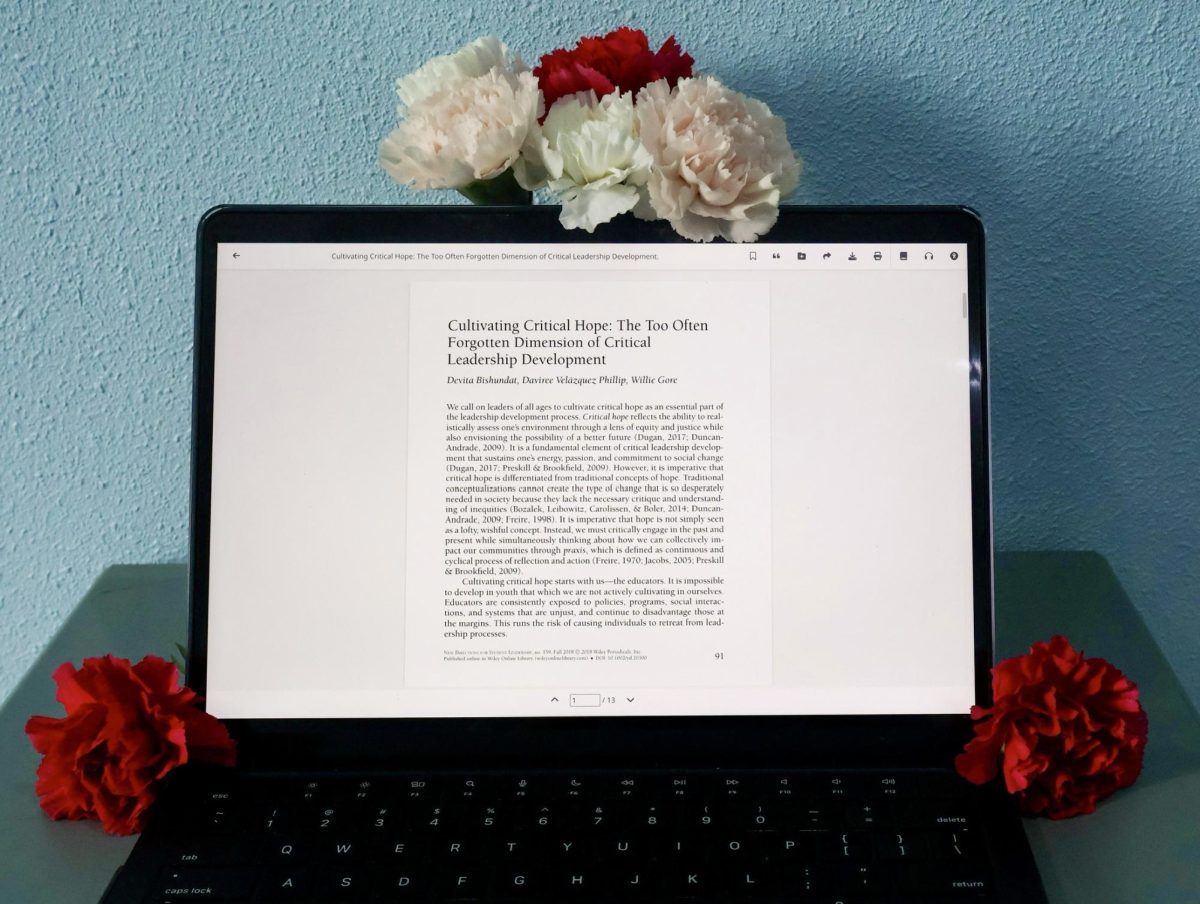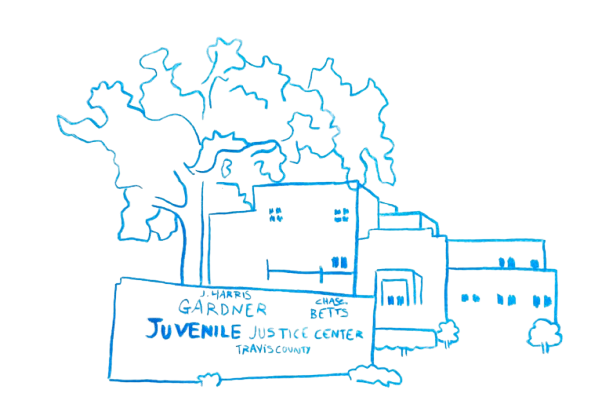In the face of dramatic immigration enforcement changes under the Trump administration, immigrant communities across the United States are turning to grassroots solutions for protection and empowerment. “Know Your Rights” forums have emerged as an effective community-based response, providing critical information, resources and support networks for immigrants, mixed-status families, concerned citizens and anyone seeking to better understand constitutional protections in the current enforcement climate. Yet these forums vary widely in their approaches, reach and effectiveness — raising important questions about what makes for sustainable community solutions in times of crisis.
The current administration has implemented several sweeping changes to immigration enforcement that have left communities scrambling for information and protection. In January 2025, the Trump administration rescinded the “sensitive locations” memorandum that had previously limited enforcement in places like schools, churches and hospitals. Additionally, the expansion of expedited removal now applies to anyone who cannot prove they’ve been in the U.S. for more than two years — a dramatic expansion from previous policies that limited such rapid deportations to those apprehended within 100 miles of the border and within 14 days of entry.
Laura Flores-Dixit, managing attorney at the San Antonio Office of American Gateways, explains the psychological impact the new policies have had on the community.
“A lot of the things that are happening with the Trump administration are done to soak fear … to create fear within our community,” she said. “And yes, a lot of bad things are in fact happening.”
In this climate, community-based solutions have become critical — not just for practical protection but for psychological resilience.
Educational institutions have developed structured responses to protect their communities. At St. Edward’s University in Austin, the Office of Student Belonging and Inclusive Excellence has partnered with Catholic Charities of Central Texas to offer workshops where students can receive guidance on immigration policies and rights in small, intimate settings. These institutional forums typically leverage professional resources, with Department of Justice accredited representatives or immigration attorneys providing carefully vetted information. They often have access to dedicated funding — St. Edward’s, for example, has established a fund specifically for students needing immigration legal assistance.
Faculty forums are another institutional response, focusing on equipping professors and staff to protect vulnerable students. These sessions address the specific legal context of educational settings, clarifying what faculty can and cannot do if immigration officials appear on campus.
While these institutional approaches provide reliable information and resources, they face significant limitations. They typically reach only those already connected to the institution, leaving much of the broader immigrant community unserved. Their formal settings and scheduling may also create barriers for working families with limited time and transportation options.
In contrast, community-based organizations like CAMINA ATX have developed a fundamentally different approach to know your rights forums. Founded by immigrants themselves, these grassroots initiatives prioritize cultural competency, accessibility and community ownership.
“Nadie puede tener más empatía con nuestra gente migrante que un que otro migrante” (Nobody can have more empathy with our migrant people than another migrant), said Oscar Ponce, who cofounded CAMINA ATX alongside his wife Selene Domínguez. “We understand what our own community’s situation is.”
CAMINA ATX, which stands for “Comunidad de Apoyo al Migrante en su Nuevo Avance” (Community to Support Migrants in their New Advancement), has organized forums that have drawn in hundreds of attendees — their first event at Santa Barbara Church welcomed over 700 community members. What distinguishes these grassroots forums is their deep cultural competency. Sessions are held in Spanish with English translation as needed,rather than the reverse, they incorporate familiar cultural elements and they build on existing community networks.
“‘Camina’ means to accompany,” Ponce explains, referencing the organization’s logo featuring two small footprints with hearts. “Nuestros valores y los principios que tenemos aquí es simple y sencillamente ayudar sin tener ninguna expectativa de ni siquiera de un gracias” (Our values and principles are simply to help without any expectation of even a thank you).
This approach generates trust that institutional forums may struggle to establish. By operating entirely through volunteer efforts and community donations, grassroots organizations like CAMINA ATX demonstrate their independence from systems that many immigrants have learned to distrust.
CAMINA ATX and similar organizations have recognized the importance of digital spaces for community building and information sharing. Their Facebook group has grown to over 1,000 members, creating a continuous channel for updates, resources and support between physical forums. This digital presence allows them to respond to developments in real time, expand their geographic reach to immigrants who cannot attend in-person forums due to distance or work schedules, build an ongoing community rather than hosting isolated events, and coordinate rapid response when community members face detention or other emergencies.
However, digital outreach also presents challenges. Privacy concerns are significant for vulnerable populations, and not all immigrants have reliable internet access or digital literacy. Organizations must carefully balance accessibility with security.
The most effective know your rights forums go beyond simply providing information — they offer immediate, practical assistance and pathways to action. At CAMINA ATX’s forum in February at St. Mary Magdalene Episcopal Church, certified notaries were present to help families complete power of attorney documents for child custody arrangements. The organization also provides weekly support services at local libraries and churches, offering assistance with consular appointments and document processing.
Similarly, educational institutions like St. Edward’s connects students directly to legal services.
“We are seeing that many immigration attorneys have increased their prices significantly,” Karen Green of Catholic Charities said, explaining why accessible legal services are increasingly critical.
This action-oriented approach addresses a key criticism of know your rights forums — that information alone is insufficient protection against aggressive enforcement actions. By providing tangible resources and services, forums transform knowledge into concrete preparation.
Know your rights forums offer numerous strengths as community solutions. They directly counter the fear that enforcement changes often create.
“Creemos que el conocimiento es poder y que no hay mejor arma para que nuestra comunidad pueda defenderse ante una interacción injusta,” (We believe that knowledge is power and that there is no better weapon for our community to defend itself against an unjust interaction), Oscar Ponce of CAMINA ATX said.
Beyond practical information, these gatherings build psychological resilience and mutual support networks. They emphasize that constitutional rights apply to all people in the U.S., regardless of immigration status. Grassroots forums in particular reach populations that may distrust or lack access to formal legal services, and immigrant-led initiatives understand community needs and communication styles in ways that institutional approaches may miss.
Despite these strengths, know your rights forums face important limitations. They reach only a fraction of vulnerable populations, with rural and isolated communities often underserved. While knowing your rights is important, it doesn’t address the fundamental lack of legal pathways for regularization that many immigrants face. Grassroots organizations operate with minimal funding and rely heavily on volunteer labor, limiting their capacity and sustainability. Different organizations often work in isolation, sometimes duplicating efforts or missing opportunities for collaboration. And even with rights knowledge, aggressive enforcement actions can still separate families and disrupt communities regardless of constitutional awareness.
To address these limitations, several approaches show promise. Developing stronger coordination between grassroots and institutional initiatives can leverage the strengths of each approach. Finding ways to resource community-led efforts without compromising their independence and trust is essential for sustainability. Expanding secure, accessible digital resources beyond Facebook would help reach diverse populations. Creating systems for continued engagement after forums could support ongoing preparation and response. And linking know your rights education to broader advocacy for policy change would connect immediate protection with long-term solutions.
Know Your Rights forums represent a vital community-based solution to the challenges of changing immigration enforcement. They embody the resilience and resourcefulness of immigrant communities facing threats to their safety and stability. The most effective approaches combine the cultural competency and community trust of grassroots initiatives with the resources and institutional support of formal organizations. They extend beyond information to action, helping community members prepare concrete plans and documentation. Yet, Know Your Rights forums remain an incomplete solution to the broader challenges of immigration policy. Without comprehensive immigration reform that provides pathways to regularization, communities will continue to need these emergency measures of self-protection.
In the current environment, however, these forums demonstrate how communities can organize to protect their most vulnerable members — creating spaces where knowledge replaces fear, and collective action builds power. That transformation — from fear to knowledge, from isolation to community — may be the most important solution these forums provide.














